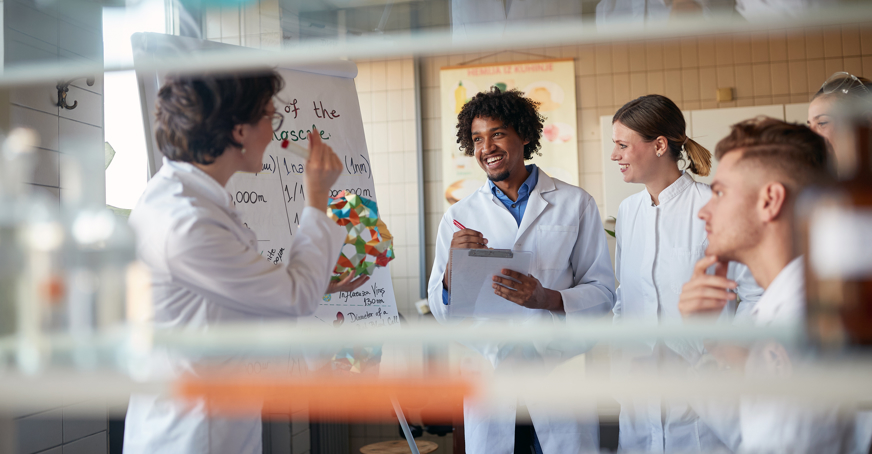
Undergraduate Studies
An undergraduate degree in Biochemistry
A biochemistry course will normally involve a broad first year, moving on to more detailed optional modules in the latter years. The first year will involve building on background knowledge in biology, chemistry, maths and computing alongside learning laboratory techniques and analysing data.
At some universities you can switch between similar courses (Biomedical Sciences, Molecular Bioscience) after the first year, and all provide you with the key skills you will need to work in the fields of molecular biosciences. Some universities also offer degrees with a built-in Master’s course, year in industry or year abroad.
Biochemistry degrees typically include topics such as:
- Cell biology and signalling
- Genetics and DNA
- Structure and function of molecules
- Enzymology
- Proteins and membranes
- Microbiology and viruses
- Disease mechanisms
- Metabolism
- Plant biochemistry
- Neurobiology
Read more in our guides to the typical undergraduate curriculum and our biochemistry career guide.
Undergraduate curriculum guide Biochemistry: the career guide
Undergraduate student support
The Biochemical Society offers a range of ways to support students with their studies and career development, which you can explore below.






Contact us
For further information and support please get in touch with the Education department.

